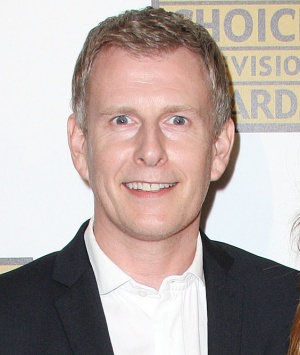
Celebrity supporter, comedian Patrick Kielty, told The Irish Post: “Tyneside Irish Cultural Society was set up in 1993 to organise concerts, workshops, festivals and cultural events every year to promote and maintain Irish culture on Tyneside. The Hibernian Hero I am rooting for is Paul Ruane. Paul is the Chairperson of the CCE, and Vice Principal of St Cuthbert’s Catholic High School in Newcastle and yet Paul somehow finds the time to volunteer as a music teacher, organise the entire music programme and tutor the young people at the Tyneside ICS for the last eight years. Paul’s family came from Mayo in the ’50s and he was born in Leeds, growing up in its strong Irish musical community. It’s great to see Paul getting some recognition for all that he does to help the community, and I couldn’t give him my backing for this award more. Vote for Paul!”

Paul Ruane has been volunteering at the Tyneside Irish Cultural Society for eight years. He is also the Chairman of the Newcastle Comhaltas branch and the assistant head teacher of St Cuthbert’s High School.
Tell us about the charity and your role:
“I have been volunteering with the centre, running the music lessons for the last eight years. It offers a range of activities in its aim to promote Irish culture in Tyneside. I’m a teacher also, and have always been interested in developing people, so I really enjoy the work I do with the society. It’s fun for the young people but also plays an important role within the community, getting young people involved, seeing them make progress and keeping at it. It is in a good location, the facilities are great and everyone involved there works so hard to support education in our young people in general.”
What services does the charity provide for Irish children?
“We offer a range of activities at the centre and work with children from the age of about five to roughly 16. They might be involved in traditional music or other classes, but ultimately we are here to develop them in their youth, so we work on team building and confidence building — we basically want them to pick up as many skills as possible in education, while developing personal skills too. On a weekly basis we probably have about 20 kids regularly. If we have a bigger event we might have 50 or 60 at any one time so there are quite a few we have responsibilities for.”
How does IYF funding support your work?
“The IYF funding we receive largely allows us to have the people with the right expertise in the centre teaching the children. It also allows us to get tutors in from abroad or to pay for kids to go to summer schools in Ireland. More generally it is used for a range of activities that support andextend the work we do and what we can provide. Without it there would be nothing like it for them as there are no organisations offering this dedicated service. It basically provides that vital foundation that allows us to look after these youngsters while promoting the heritage of their culture. The funding provides insurance that these vital services exist here and that’s so important.”
How important is the work you do for the children you serve?
“It’s vital for young people here. Roughly 40 per cent of people in Newcastle have an Irish background, although their roots might be quite far back now. Many of the Irish families resident locally are descendants of relatives who moved over in the 1920s. Their involvement with the society is a great way to bridge the gap between their heritage and their culture. We see people from all over the city and from south Tyneside as well, as they don’t have the facilities there that we have. So ultimately we are seeing the huge Irish community and the main thing for our young people is the personal development we can offer — not just to learn an instrument, but to stand up in front of people, an audience, and present themselves. Our work picks up on numeracy and literacy as well and we put it all together through the medium of music, Irish music in particular. It’s all about picking up those skills and that self-confidence and as the children are often with us for up to nine years, you can see them starting to shine as they come through. They all get a chance to perform, even the least able can make a contribution, and when they get up there and see the people, the audience really appreciating them, it’s remarkable.”
What does it mean to your organisation to be nominated for the IYF Hibernian Hero Award?
“It’s extremely flattering to be nominated for this award. We were not expecting it and it helps to make sure that people are aware of the work we are doing here and how important it is. It recognises the hard work of lots of people who make this centre function and it also highlights the North-East which is culturally deprived in lots of ways. Most accolades, awards and funding, are London centric. Relatively speaking we get little of the funding available for the Irish community in Britain, but we do what we do anyway. We will always do that and get on with the job that needs to be done, but it would be great to have recognition for the team.”

